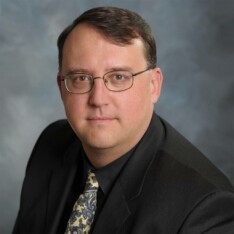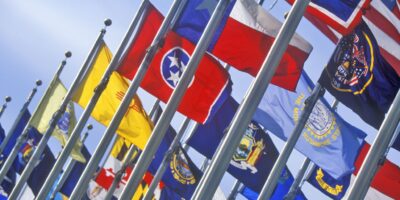How the Religious Mind – vs Political Arrogance – Copes with Death

I usually write to try to persuade, as I did way back at the beginning of the COVID Crisis when on 4 March I tried to convince policymakers that “human beings have a natural right to self-preservation. They exist for their own enjoyment, not to serve as the pawns of anyone or anything, even during putative crises.” Few listened, though some judges are finally beginning to wake up to the fact that the US and state constitutions are the most important victims of the crisis because they are the bulwarks protecting all of our lives from those who would harm us.
In this piece, though, I am just going to explain a conversation I overheard in a diner in Hill City, South Dakota over Memorial Day weekend between a Minnesota couple and a local man. Minnesotans invaded the Black Hills (that’s where Mount Rushmore is located, plus lots of lakes, hiking trails, etc.) over the holiday because their economy is still locked down while South Dakota’s has remained almost entirely open throughout.
So open, in fact, that policymakers and business leaders from across the country should visit it, and/or the other Free States of North Dakota, Nebraska, Iowa, and Arkansas, to learn how to re-open. Sweden has been getting all sorts of attention but the Free States have done just as well, all while bearing the burden of feeding much of the rest of the country and accepting its refugees, if only as weekend tourists. Instead of lamenting that they do not know how to reopen safely, and ignoring my hint about running field experiments, leaders could discover what has actually worked in the Free States.
Hair salons in Sioux Falls, for example, “temp” workers at the beginning of each shift, ask everyone to wear masks (under longstanding “no shirt, no shoes” precedent) and use hand sanitizer, clean stations after each customer, and have customers wait in their automobiles until called, when an employee opens the door for them. The story at the dentists is similar, except there they insist that patients do not wear masks. Ba dum dum.
Seriously though, while California and other states have prevented businesses from learning how to cope with the coronavirus, the Free States have developed a lot of expertise, most of it free for the copying.
There is something else about the free states that other Americans are free to copy, too, and it’s called religion. Again, I am not trying to persuade anyone to join with Jesus, just pointing out that religion is not only an opiate of the masses, it can bring clarity to life, and death, and need not be of the over-the-top variety to do so. In fact, even an old classical liberal Deist such as myself can buy into a Midwestern view of human mortality.
And this brings us back to my eavesdropping. The local volunteered that his sister had recently died at age 70. The couple was sorry for his loss, to which the local responded, “I am happy that she is dead.” The couple was taken aback and I expected to hear a story about an evil stepsister. “You see,” the local explained, “she was a great person who had been in pain for a decade. Now, she is no longer suffering and, in fact, I know she is dancing with Jesus at this very moment.” I quickly applied lots of hot sauce to my Denver omelette as cover for my teary eyes.
The five Free States, you see, share more than having a Republican governor. Many of the people in those states are also deeply religious. (In fact, in Sioux Falls one can give directions solely with reference to churches. God’s honest truth right there.) For “godless” coastal elites, death is final. For those in “God’s country,” death is simply a passage to another life, one that we must all undertake sooner or later. While one should not deliberately cause the demise of oneself or other people (especially innocent babies), “good” Christians (and plenty of other spiritual folk too) believe that one need not lament death, especially when people pass naturally.
Politicians and pundits on the Left labelled lockdowns as a choice between “people” and the “economy” but that view rang hollow in the Heartland because the Lord, as they say, will take your soul when He wants to. Deaths from COVID-19 (unlike deaths from abortion, murder, or suicide) are His Will but shuttering businesses is not, it is a policy decision of dubious merit suffused with human hubris.
Sometimes, the devout believe, Jesus wants new dance partners and He will have them one way or another. “Thy Kingdom come, thy will be done.” That is why “Serenity,” the poetic prayer of American theologian Reinhold Niebuhr (1892-1971), remains second in popularity only to “Footprints in the Sand” among the faithful:
God, grant me the serenity to accept the things I cannot change,
courage to change the things I can,
and wisdom to know the difference.
If policymakers had serenity, courage, and wisdom, 40 million Americans would still have their jobs or small businesses and Jesus would have approximately the same number of American dance partners as He does now.












